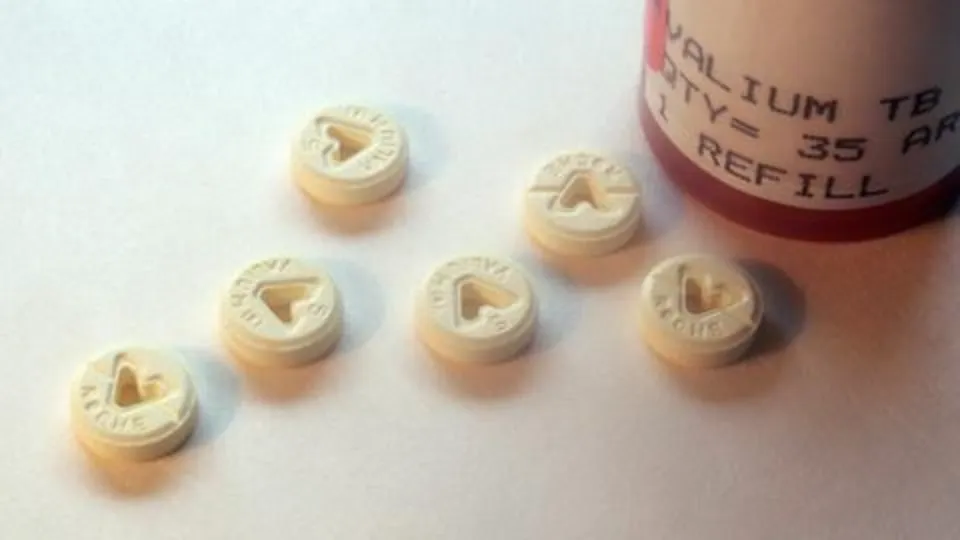Anxiety, muscle spasms, alcohol withdrawal, and seizures can all be treated with the prescription drug diazepam, also known by the brand name Valium. The brain and nervous system are calmed by benzodiazepines. It is a member of the class of medications known as benzodiazepines.
Depending on your individual needs, either you or your child will receive a customized diazepam dose and administration schedule. You must take diazepam precisely as prescribed by your doctor. Never exceed your doctor’s recommended dose or duration of diazepam use. The typical dose for anxiety is 2 mg taken three times daily; this can be increased to 5 mg to 10 mg taken three times daily.), for anxiety-related insomnia is 5mg to 15mg taken once a day for sleeping.
Continue reading to discover more about benzodiazepines.
Read more: Flexeril Dosage Guide: How Much is Safe? (2023) – Elder VIP
What is Diazepam?
A benzodiazepine medication called diazepam has sedative, anxiety-relieving, and muscle-relaxing effects. Although diazepam is no longer marketed in the UK, it is occasionally referred to by the brand name Valium.
Tablets (Diazepam 2mg, Diazepam 5mg, and Diazepam 10mg), liquid, injection (Diazemuls), and rectal solution or enema (Stesolid rectal tubes) are all available forms of benzodiazepines.

What is Diazepam Used For?
Diazepam is prescribed for:
- Treatment for severe, incapacitating, or distressing anxiety, including treatment during manic bipolar episodes and panic attacks.
- Treatment for insomnia, a sleeping disorder linked to anxiety, in the short term.
- Providing relief from muscle spasms, including those brought on by head, neck, or back injuries, motor neuron disease, cerebral palsy, tetanus, or poisoning.
- Taking care of the withdrawal effects of alcohol.
- Regulating epileptic or fever-related seizures (fits or convulsions).
- Causing you to feel calm, relaxed, and/or sleepy prior to procedures in the medical, dental, or surgical fields (pre-med).
Due to the potential for tolerance or dependence, diazepam should only be used for a short period of time (up to four weeks).
Diazepam Side Effects
The side effects of diazepam can be mild or severe.
Oral benzodiazepines like diazepam can make your brain less active and impair your judgment, thinking, and motor skills. While taking diazepam, you shouldn’t consume alcohol or engage in other activities that could slow down your brain’s activity. Additionally, until you understand how this medication affects you, avoid operating machinery, operating a vehicle, or performing other tasks that call for alertness. You ought to be mindful of additional effects as well.
Some of the most significant adverse reactions that could happen while taking diazepam are listed in the list below. Not all potential side effects are covered in this list. Consult your doctor or pharmacist for more details on the potential side effects of diazepam or for advice on how to handle a concerning side effect.
The more common side effects that can occur with diazepam include:
- Drowsiness
- Tiredness or fatigue
- Muscle weakness
- Inability to control muscle movements (ataxia)
- Headache
- Tremor
- Dizziness
- Dry mouth or excessive saliva
- Nausea
- Constipation
If these side effects are minor, they might disappear in a couple of days or weeks. Consult your physician or pharmacist if they become more severe or don’t go away.

How Much Diazepam Should I Take to Sleep?
Depending on your unique circumstances, the recommended diazepam dosage and frequency will be tailored specifically for you or your child. You must take diazepam precisely as prescribed by your physician. Never take diazepam in excess of the recommended dosage or for an extended period of time.
The recommended dosage for anxiety is 2 mg three times per day, but this can be increased to 5 mg or 10 mg three times per day.), for anxiety-related insomnia is 5mg to 15mg taken once a day at bedtime, and for muscle spasms in adults is 2mg to 15 mg a day although in some cases this can be increased under medical supervision to 20mg 3 times a day if needed.
The dosage varies depending on age but is typically given twice daily with a 10–12 hour interval between each dose for children under the age of 17 who have muscle spasms.
Adult Dosage (ages 18 to 64 Years)
The recommended dosage is 2 mg to 10 mg taken orally two to four times per day.
Child Dosage (ages 0 to 5 Months)
Since this medication hasn’t been tested on kids, it shouldn’t be administered to babies younger than six months.
Child Dosage (ages 6 Months to 17 Years)
- The recommended starting dose is 1 mg to 2.5 mg taken orally three to four times per day.
- Starting with the lowest dosage possible, your doctor will gradually increase it based on how you react to and tolerate the drug.
Senior Dosage (ages 65 Years and Older)
- 2 mg to 2.5 mg taken by mouth once or twice a day as the initial dosage is the norm.
- Based on your response to and tolerance of this medication, your doctor will gradually increase your dosage as necessary.
- This drug takes longer for your body to process. In order to prevent an accumulation of this medication in your body, your doctor might prescribe a lower dosage at first. The effects of a drug overdose can be toxic.
Special Considerations
People with debilitating diseases:
- The typical starting dose is 2 mg to 2.5 mg, administered once or twice daily.
- Based on your response to and tolerance of this medication, your doctor will gradually increase your dosage as necessary.
Final Thoughts
Because diazepam’s effects can become tolerable over time and require higher doses to achieve the same effects, it is typically only appropriate for short-term use. Furthermore, diazepam use can lead to the emergence of physical or mental dependence. It is typically only prescribed for two to four weeks at most, including a time when the dose is gradually decreased.
FAQs
Does Diazepam Help You Sleep?
Diazepam is a benzodiazepine sleeping pill. Dialar, Diazemuls, Diazepam Desitin, Diazepam Rectubes, Stesolid, and Tensium are some of its other brand names. A controlled substance of class C, it. Information on controlled medications is available from the NICE, the National Institute for Health and Care Excellence.
Is Diazepam a Good Sedative?
Alcohol withdrawal, anxiety, and seizures are all treated with benzodiazepines. As a sedative before medical procedures, it is also employed to ease muscle spasms. The way this drug works is by calming the nervous system and the brain.



